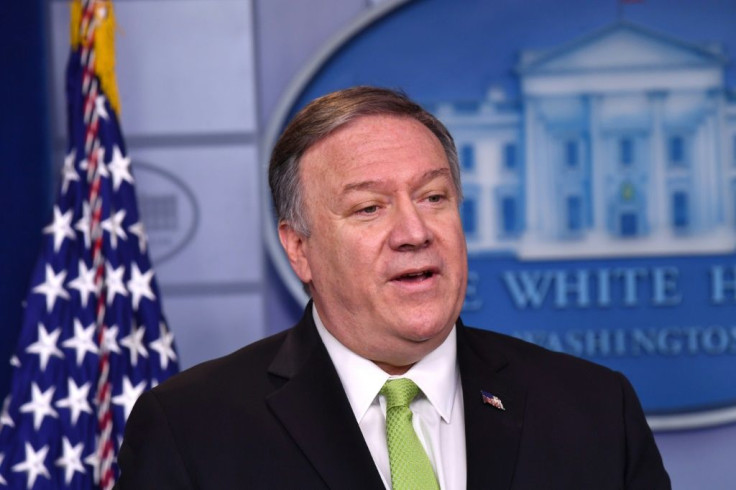US - Iran Relations: Will Mike Pompeo Testify About Soleimani Attack?

KEY POINTS
- House Foreign Affairs Committee Eliot Engle said he's disappointed by Pompeo's decision
- The committee hearing was scheduled amid questions over whether there was an imminent threat to U.S. interests
- Defense Secretary Mark Esper admitted there's no specific evidence of an imminent threat to four U.S. embassies as President Trump has claimed
House Foreign Affairs Committee Chairman Eliot Engle said Monday he is disappointed Secretary of State Mike Pompeo has decided not to testify before the panel at Tuesday’s hearing on the targeted drone strike that killed an Iranian general.
A statement issued by the State Department Friday said Pompeo would be in California through Wednesday.
"I’m disappointed and frustrated that Secretary Pompeo will not appear before the committee tomorrow [Tuesday],” Engle said in a statement. “Each passing day raises new questions about the strike that killed General Soleimani.
“Was there really an imminent threat? Was it part of a larger operation? What was the legal justification? What is the path forward? With the wildly muddled explanations coming from the administration, the secretary should welcome the opportunity to make the case and answer questions before the American people. The committee expects to hear from him soon.”
Gen. Qassem Soleimani, blamed for hundreds of American deaths and casualties in the Middle East as head of Iran’s Quds Force, was killed in a drone strike outside Baghdad airport. The attack has soured relations with the Iraqi government and stirred the ire of Congress because it would conducted without notifying lawmakers.
President Trump last week justified the attack, saying Soleimani was planning a strike against four U.S. embassies, but Defense Secretary Mike Esper said Sunday though he shared that belief, he had seen no such specific intelligence.
“I didn't see one [a threat] with regard to four embassies,” Esper said on CBS’ “Face the Nation. “What I'm saying is I share the president's view that probably -- my expectation was they were going to go after our embassies. The embassies are the most prominent display of American presence in a country.”
Trump Monday rejected efforts by the media and Democrats to determine whether Soleimani’s killed was justified because of an imminent threat.
“The answer … is a strong yes, but it doesn’t really matter because of his horrible past!” Trump said, adding the general should have been targeted two decades ago.
Soleimani’s death capped a week of hostilities between the U.S. and Iran that included the storming of the U.S. Embassy in Baghdad. Iran retaliated with a strike on two Iraqi bases that housed U.S. troops that caused little damage and no casualties.
Shortly after the missile attacks, Iranian troops accidentally shot down a civilian Ukrainian passenger jet, killing all 176 people aboard. Since Iran admitted culpability, demonstrators have been calling on
Supreme Leader Ali Khameini to resign.
© Copyright IBTimes 2025. All rights reserved.






















